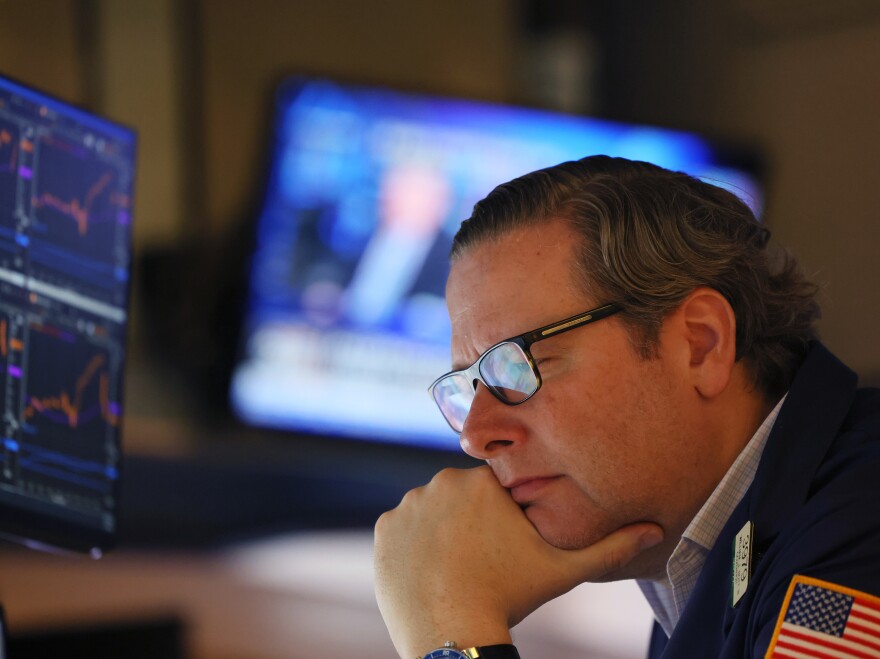Updated May 5, 2022 at 5:40 PM ET
It was an ugly day on Wall Street, with stocks going from one of their best days in recent memory to one of their worst on Thursday.
The Dow fell by 1,063 points, just a day after gaining nearly 1,000 points. The S&P 500 and the tech-heavy Nasdaq suffered similar swings after they had one of their best days since 2020.
The sharp turnaround denotes the incredible volatility in markets and the deepening fears that the economy may be headed to a recession as the Federal Reserve embarks on one of its most aggressive fights against inflation in years.
"I think we need to prepare ourselves for a volatile market," said Savita Subramanian, head of U.S. equity and quantitative strategy at Bank of America Securities.
Subramanian said markets are adjusting for a new environment of higher interest rates after enjoying historically low rates for years.
"I mean, for the last 30 or 40 years, we have seen rates slowly grinding down to zero, and we are embarking now on the opposite of that," she said.
It mainly hinges on the Fed
On Wednesday, the Fed raised interest rates by half a percentage point, as Wall Street expected. The Fed said more rate hikes of that size are on the table, as the central bank intensifies its fight against persistently high inflation.
But investors were relieved after Fed Chair Jerome Powell appeared to rule out increases larger than half a percentage point at future meetings.
The positive feelings did not last. Just hours later, markets went the opposite way as investors reckoned with the hard reality that interest rates are going up, which is bound to raise borrowing costs across the economy, from mortgages to bank loans.

The Fed wants to engineer a "soft landing" for the U.S. economy, by raising rates just enough to cool inflation without kickstarting a recession.
But investors are worried the central bank will overdo its rate hikes, tipping the economy into a deep downturn in its quest to bring down inflation.
Those fears are leading to the dramatic swings in markets.
An ugly, ugly year for markets
The falls on Thursday extend what has been an ugly year for markets.
The Fed's rate hikes also come at a time of deep uncertainty about the global economy as Russia's invasion of Ukraine continues and China is in the midst of lockdowns to tamp down a COVID outbreak.
Technology stocks had quite a run during the pandemic, but they were among the biggest decliners on Thursday. Netflix, Amazon, and Meta, Facebook's parent company, all slumped by about 7%.
Higher interest rates put pressure on high-growth technology stocks in particular, because they are more dependent on debt.
Other companies that saw their shares surge during the pandemic are experiencing a reversal this year. Peloton closed down 9%, Wayfair ended down 25.7%, and Carvana, the used car retailer, was off almost 18%.
Bonds were also hit hard on Wednesday, with the yield on the 10-year Treasury trading over 3% — its highest level since 2018.
Copyright 2023 NPR. To see more, visit https://www.npr.org.




